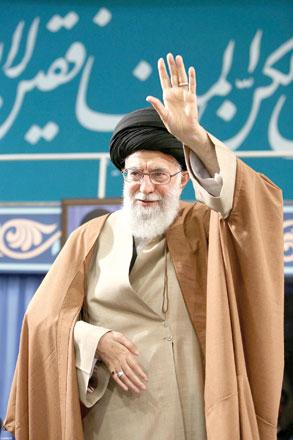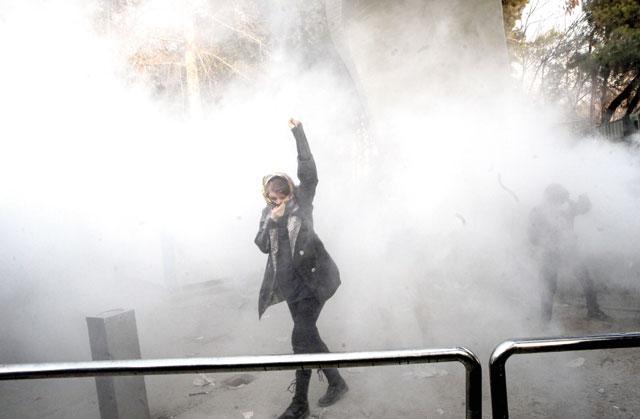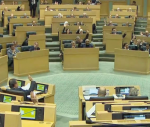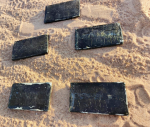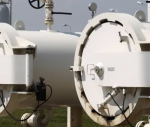You are here
Iran’s leader blames enemies for unrests as death toll rises
By Thomson Reuters Foundation - Jan 02,2018 - Last updated at Jan 02,2018

Protesters wave flags as they gather outside the Iranian embassy in central London on Tuesday, in support of national demonstrations in Iran against the existing regime (AFP photo)
LONDON — Iran’s supreme leader on Tuesday accused the country’s enemies of stirring unrest as the death toll from anti-government demonstrations that began last week rose to 21.
Nine Iranians were killed in Isfahan province during protests on Monday night, including two members of the security forces, state television said.
Six protesters were killed during an attack on a police station in the town of Qahderijan. The governor of Falavarjan county said the protesters were armed.
The deputy provincial governor of Tehran said police have arrested more than 450 protesters in the capital over the past three days as security forces struggle to contain the boldest challenge to Iran’s clerical leadership since unrest in 2009.
In his first reaction to the unrest, Ayatollah Ali Khamenei said: “In recent days, enemies of Iran used different tools including cash, weapons, politics and intelligence apparatus to create troubles for the Islamic Republic.”
Khamenei said on his website that he would address the nation about the recent events “when the time is right”.
He did not mention any enemies by name but Ali Shamkhani, secretary of the Supreme National Security Council, said the United States, Britain and Saudi Arabia were behind the recent riots in Iran.
“Saudis will receive Iran’s unexpected response and they know how serious it can be,” Shamkhani was quoted as saying by Tasnim news in an interview with Beirut-based Al Mayadeen TV.
Harsh punishment
Musa Ghazanfarabadi, head of Tehran’s Revolutionary Court, warned protesters on Tuesday that those arrested would face harsh punishment.
Ghazanfarabadi said the detainees will be soon put on trial and the ringleaders would face serious charges including “moharebeh” — an Islamic term meaning warring against God — which carries the death penalty.
The semi-official ILNA news agency quoted Ali Asghar Naserbakht, the deputy governor of Tehran province, as saying that 200 people were arrested on Saturday in Tehran, 150 people on Sunday and about 100 people on Monday.
Hundreds of others have been arrested in other cities, according to agency reports and social media.
Naserbakht said the situation in Tehran was under control and police has not asked for the help of the Revolutionary Guards special forces.
Deputy Interior Minister Hossein Zolfaghari said 90 per cent of the detainees were under 25-year-old, showing frustration among youths from the economic situation and lack of social freedoms.
A judiciary official was quoted as saying by ISNA that 20 ringleaders of protests in Karaj, the fourth largest city in Iran, have been arrested.
The demonstrations which broke out last week were initially focused on economic hardships and alleged corruption but turned into political rallies.
Anger was soon directed at the clerical leadership that has been in power since the 1979 revolution, including Ayatollah Khamenei, the ultimate authority in Iran’s system of dual clerical and republican rule.
Iran is an OPEC oil producer and regional power deeply involved in Syria and Iraq as part of a battle for influence with rival Saudi Arabia.
Many Iranians resent the foreign interventions and want their leaders to create jobs at home, where youth unemployment reached 29 per cent last year.
Government spokesman Mohammad Baqer Nobakht said in a news conference that both protesters and the security forces should follow the law.
“People have the rights to protest but there is a difference between demonstration and riot...Even those who are confronting the rioters should act within the framework of law,” he said.
State television reported that protesters who set ablaze four mosques in villages in Savadkuh County in northern Iran on Monday have been arrested.
Reactions
President Hassan Rouhani refrained on Monday from accepting responsibility of problems raised by protesters and he blamed his predecessor and also Iran’s long-time adversary, the United States for the government’s shortcomings.
Rouhani, seen as a pragmatist who is at odds with hardliners, said: “People on the streets do not ask for bread and water, but for more freedom,” — implying that the protesters were not targetting his government but the more rigid establishment.
US President Donald Trump, who has been tweeting daily in support of the protesters, said on Tuesday: “The people of Iran are finally acting against the brutal and corrupt Iranian regime... The people have little food, big inflation and no human rights. The US is watching!”
Iranian Foreign Ministry spokesman, Bahram Qasemi, said on Tuesday: “Instead of wasting his time by publishing offensive tweets to other nations, Trump should focus on internal affairs of America.”
A US official who is following developments told Reuters that Trump’s tweets were playing into the government’s hands and allowing it to accuse enemies of the Islamic Republic of fomenting the unrest.
“What the president is doing is taking the focus off the real reasons for the protests, like the foreign adventures and the corruption, and putting it on himself,” said the US official, who spoke on the condition of anonymity.
The source added US intelligence officials think the protesters have little chance of toppling the government.
Turkey said on Tuesday it was concerned by reports of people dying and public buildings being damaged in Iran.
“We believe it is necessary to avoid violence and not succumb to provocations,” the Turkish foreign ministry said, adding that it hoped foreign intervention would be avoided.
France said it was concerned by the number of victims and arrests in Iran.
The Russian foreign ministry was quoted by the RIA news agency as saying external interference was destabilising the situation and calling it “unacceptable”.
Related Articles
BEIRUT — Iran has foiled attempts by its foreign enemies to turn legitimate protests into an insurgency to overthrow the Islamic Republic, S
LONDON — Iran warned of a tough crackdown on Sunday against demonstrators who pose one of the most audacious challenges to its clerical lead
LONDON — Protests that shook Iran were not just aimed at the economy, President Hassan Rouhani said on Monday, remarks suggesting the real t


